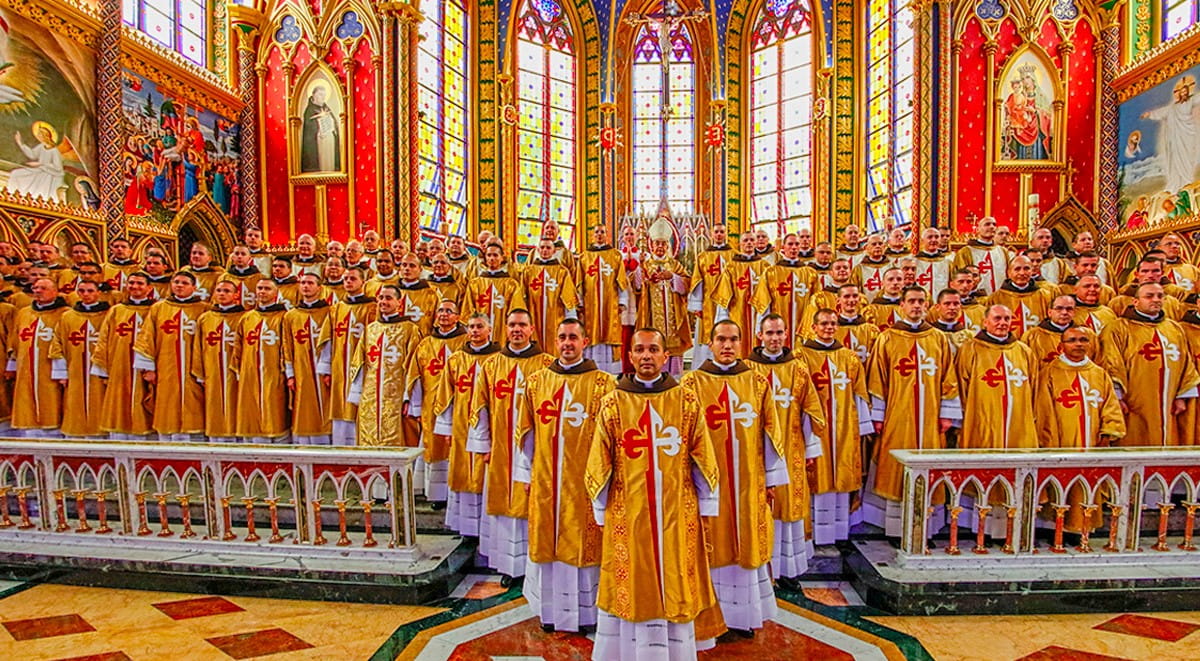
What is the Society of Apostolic Life? The Society of Apostolic Life (SAL) is a unique form of consecrated life within the Catholic Church. Members live together in community, guided by a specific charism and mission approved by the Holy See. Unlike traditional religious orders, SALs focus on a particular apostolate, such as education, healthcare, or missionary work, without taking perpetual vows. They commit to poverty, chastity, and obedience tailored to their society's mission. Originating in the 19th century, these societies play a crucial role in serving the Church and the world through specialized ministries. Let's explore 20 key facts about SALs.
20 Facts About the Society of Apostolic Life
The Society of Apostolic Life (SAL) is a unique and fascinating entity within the Catholic Church. Let's explore some key facts about its history, structure, and significance.
Definition and Purpose
The Society of Apostolic Life is a special form of consecrated life within the Catholic Church. Members live together, guided by a superior, and focus on a specific mission or apostolate.
- Definition: SALs are groups where members live a common life according to their charism, under a superior's guidance, with Holy See approval.
- Primary Purpose: Their main goal is to serve the Church and the world through their specific apostolate, which can include various forms of service, education, and spiritual guidance.
History
The roots of the Society of Apostolic Life stretch back to the early Christian Church. However, its modern form began to take shape in the 19th century.
- Early Beginnings: The concept dates back to early Christians living in community to support each other in apostolic work.
- Modern Recognition: The first formally recognized SAL was the Congregation of the Holy Family, founded in 1855 by Jean-Baptiste Rauzan.
Types of Societies
There are several types of Societies of Apostolic Life, each with its unique charism and apostolate.
- Congregation of the Holy Family: Founded in 1855, this congregation focuses on caring for the elderly and the sick.
- Society of St. Sulpice: Established in 1641, this society is primarily involved in the formation of priests.
- Society of the Divine Word: Founded in 1875, this society dedicates itself to missionary work and evangelization.
Structure
Each SAL has its own structure, but they all share certain commonalities.
- Governance: Typically governed by a superior who guides the community according to the society's charism and apostolate.
- Community Life: Members live together, often following a common rule or constitution that outlines their way of life.
Membership
Joining a SAL involves a period of discernment and formation.
- Open to All: Membership is usually open to both men and women who feel called to a life of consecration and service.
- Vows: Members take vows of poverty, chastity, and obedience, tailored to their society's specific charism and apostolate.
Apostolate
The apostolate is the primary focus of a SAL.
- Unique Missions: Each society serves the Church and the world in its unique way, such as missionary work or caring for the elderly.
Spirituality
Members of a SAL live a life of deep spirituality.
- Prayer Practices: They engage in various forms of prayer, including liturgical, personal, and communal prayer.
- Rooted in Charism: Their spirituality is deeply connected to their charism and apostolate.
Community Life
Living in community is a crucial aspect of SALs.
- Shared Life: Members share meals, prayer, and work, fostering a sense of brotherhood or sisterhood.
Formation
Formation is a critical aspect of joining a SAL.
- Discernment Period: This involves a period of discernment and introduction to the society's charism and apostolate.
- Preparation: The process prepares individuals for their future role within the society.
Charism
The charism is the unique gift or talent that each SAL possesses.
- Driving Force: It defines their way of life and apostolate, such as priestly formation or caring for the elderly.
Approval by the Holy See
All SALs must receive approval from the Holy See.
- Formal Recognition: This ensures that the society's charism and apostolate align with the teachings and mission of the Catholic Church.
Role in the Church
SALs play a significant role in the Catholic Church.
- Specialized Services: They provide specialized services and support in areas like education, healthcare, and evangelization.
The Impact of Societies of Apostolic Life
Societies of Apostolic Life (SAL) play a vital role in the Catholic Church. They offer unique services and support through their specific charisms and apostolates. From caring for the elderly to forming priests, these societies address various needs within the Church and society. Members live a life of deep spirituality, guided by a common rule and superior. Despite challenges like financial constraints and lack of vocations, SALs continue to make a significant impact. Their international presence allows them to serve diverse populations globally. The legacy of SALs is profound, inspiring countless individuals to follow in their footsteps. Through dedicated service and spirituality, they contribute significantly to the Church's mission and society's well-being. Their enduring commitment ensures that their mission continues to thrive, making a lasting difference in the world.
Was this page helpful?
Our commitment to delivering trustworthy and engaging content is at the heart of what we do. Each fact on our site is contributed by real users like you, bringing a wealth of diverse insights and information. To ensure the highest standards of accuracy and reliability, our dedicated editors meticulously review each submission. This process guarantees that the facts we share are not only fascinating but also credible. Trust in our commitment to quality and authenticity as you explore and learn with us.

